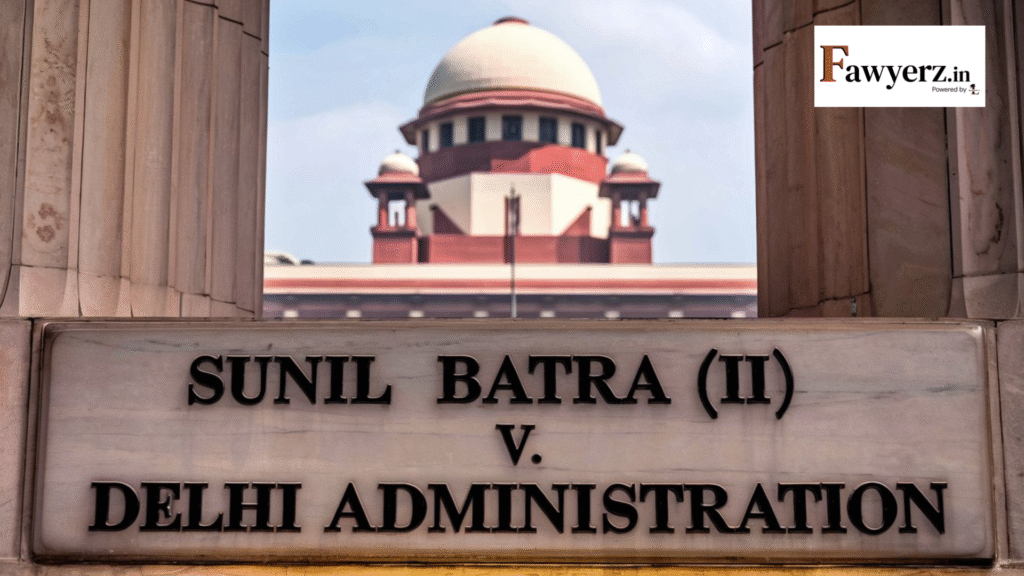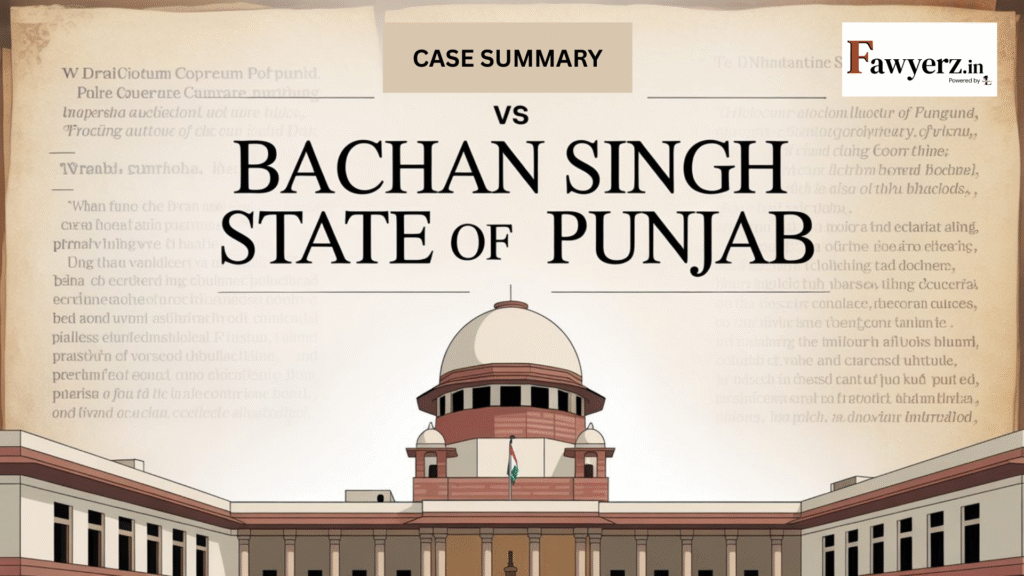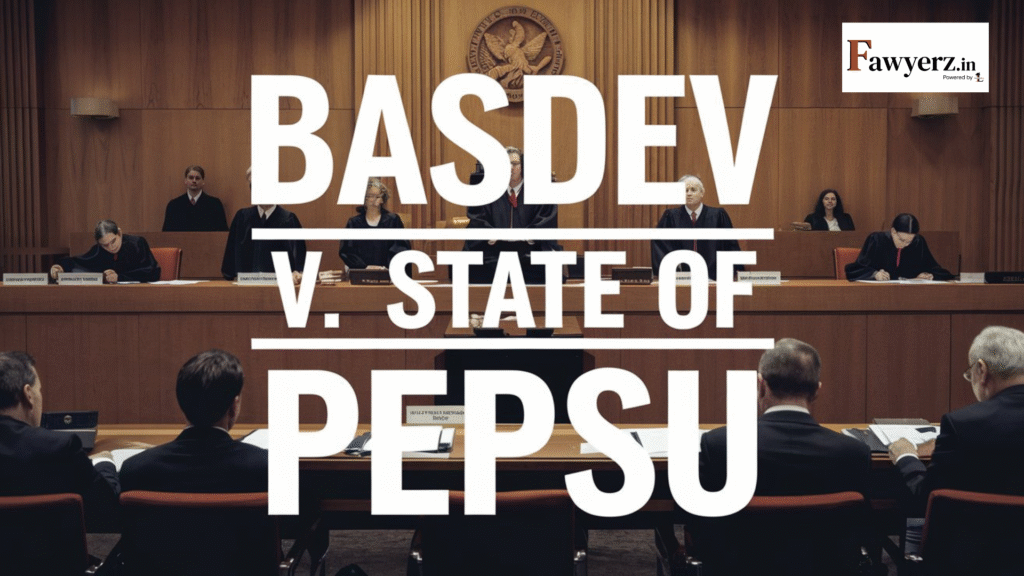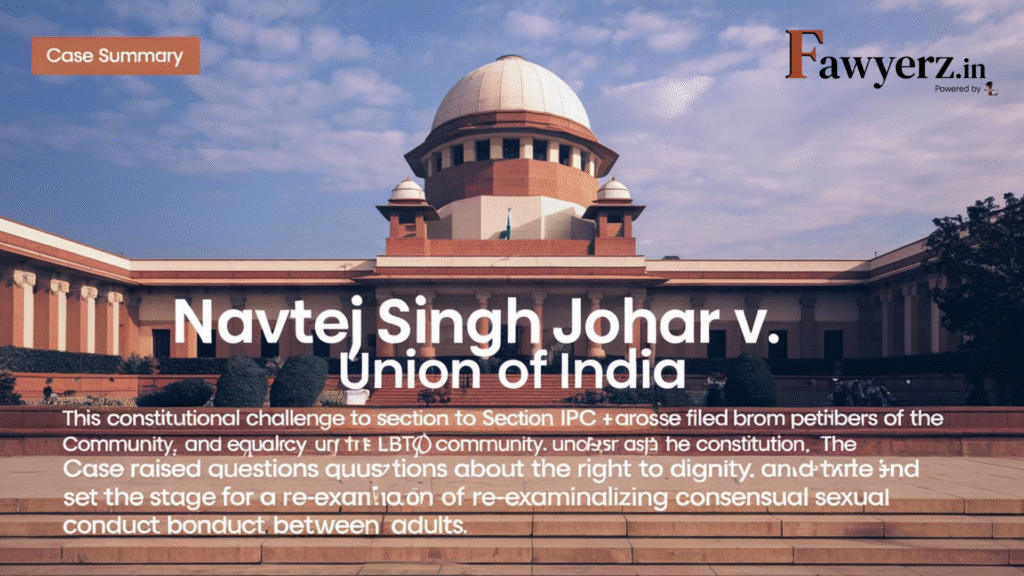Navtej Singh Johar v. Union of India 2018 (Case Summary)
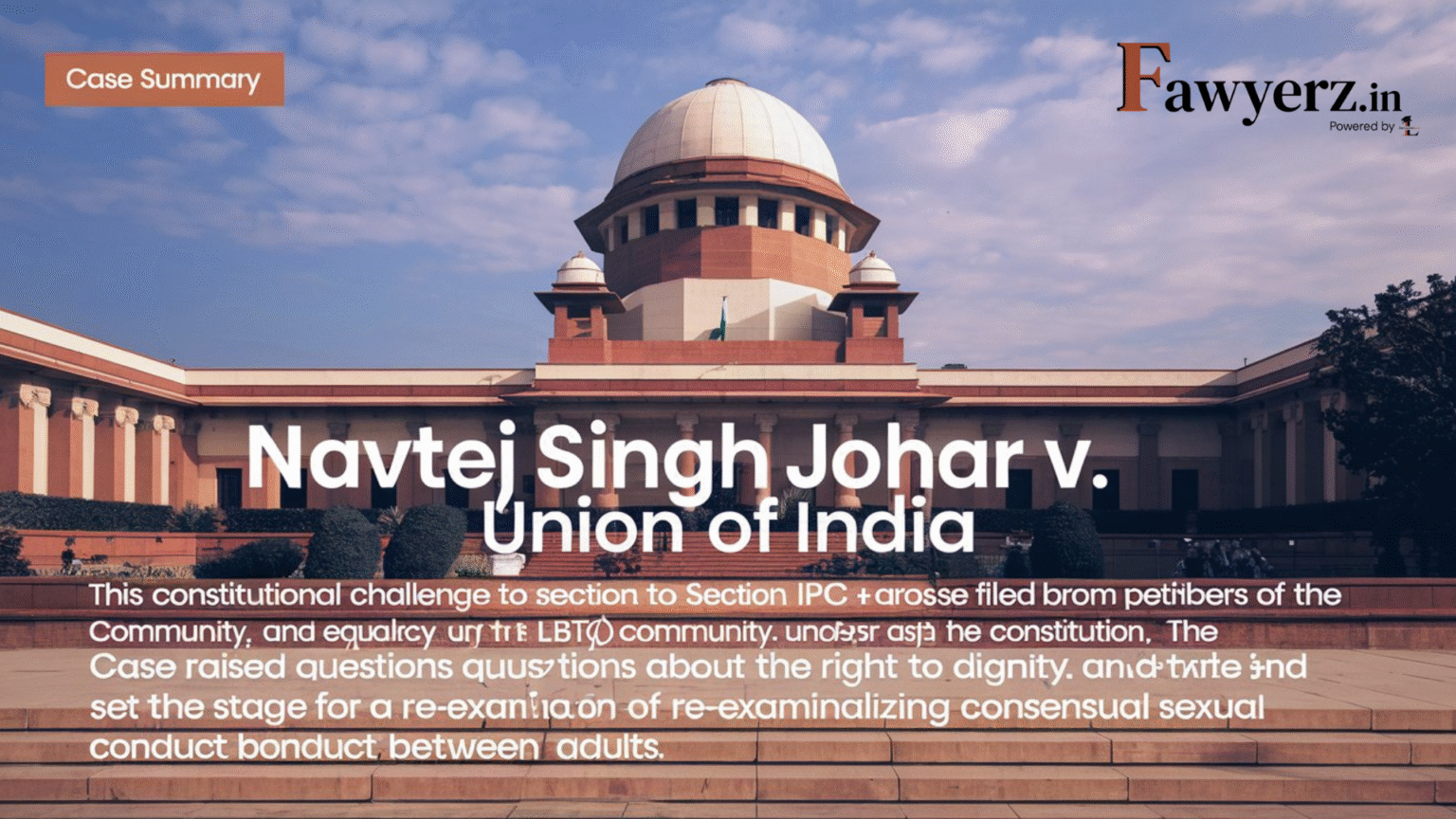
This constitutional challenge to Section 377 of the IPC arose from petitions filed by members of the LGBTQ+ community. The case raised critical questions about the right to dignity, privacy, and equality under the Constitution, and set the stage for a re-examination of colonial-era laws criminalizing consensual sexual conduct between adults.
Table of Contents
ToggleFacts of Navtej Singh Johar v. Union of India
- Navtej Singh Johar, a dancer and LGBTQ+ rights activist, along with other petitioners, filed a writ petition challenging the constitutional validity of Section 377 IPC.
- Section 377 criminalized “carnal intercourse against the order of nature,” which was interpreted to include consensual homosexual acts.
- The petitioners argued that the provision violated their fundamental rights under Articles 14, 15, 19 and 21 of the Constitution.
- The case followed the Supreme Court’s earlier decision in Suresh Kumar Koushal v. Naz Foundation (2013), which had upheld the validity of Section 377.
- The petitioners sought reconsideration of the 2013 ruling
Issues framed
- Whether Section 377 IPC, insofar as it criminalizes consensual sexual conduct between adults of the same sex, violates Articles 14, 15, 19 and 21 of the Constitution?
- Whether individuals have a fundamental right to their sexual orientation and the freedom to express it?
- Whether the judgment in Suresh Kumar Koushal v. Naz Foundation requires reconsideration?
Subordinate Court Judgment
In Naz Foundation v. Govt. of NCT of Delhi (2009), the Delhi High Court had decriminalized consensual homosexual acts among adults by reading down Section 377. However, in Suresh Kumar Koushal v. Naz Foundation (2013), the Supreme Court reversed the Delhi High Court’s decision and upheld the constitutionality of Section 377. The present case was a writ petition filed directly before the Supreme Court under Article 32 of the Constitution, challenging the correctness of the 2013 decision.
Judgment of Navtej Singh Johar v. Union of India
The Supreme Court unanimously held that Section 377 IPC, to the extent it criminalized consensual sexual acts between adults in private, was unconstitutional as it violated Articles 14, 15, 19, and 21 of the Constitution of India. The Court emphasized that the Constitution guarantees to every individual the right to equality, dignity, privacy, and freedom of expression, regardless of their sexual orientation. It recognized that sexual orientation is an innate attribute of identity and cannot be a ground for discrimination.
The Court held that criminalizing consensual homosexual acts undermined the dignity and self-worth of individuals and perpetuated stigma, harassment, and violence against the LGBTQ+ community. It noted that the application of Section 377 had led to the denial of basic rights and freedoms and reinforced social prejudices. The bench clarified that constitutional morality must prevail over societal morality and that the rights of a minority cannot be held hostage to the views of the majority.
The Court reaffirmed the right to privacy as established in Justice K.S. Puttaswamy v. Union of India (2017), held that the right to make intimate decisions regarding one’s body and relationships lies at the core of individual autonomy protected under Article 21. It also held that Section 377 violated Article 14 by being arbitrary and overbroad, as it criminalized even consensual acts between adults without a rational basis. Furthermore, it violated Article 15 by discriminating on the grounds of sex, which includes sexual orientation, and Article 19 by curbing freedom of expression and identity.
The decision in Suresh Kumar Koushal v. Naz Foundation (2013) was explicitly overruled. The Court clarified that while Section 377 would remain applicable to non-consensual acts and acts involving minors or animals, it would no longer apply to consensual sexual conduct between adults. The Court urged the government and society at large to work towards the protection and inclusion of LGBTQ+ individuals, emphasizing that they are entitled to equal citizenship, without fear or shame.


